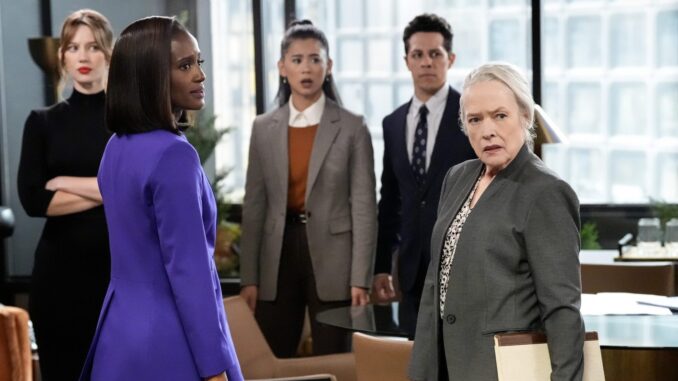
Kathy Bates' Road to Record-Setting Matlock Nomination: "I Had No Expectations"
The Georgia sun beat down with relentless ferocity as Kathy Bates squinted at the sprawling Matlock set. Palm trees swayed in the manufactured breeze, and the air hummed with the orchestrated chaos of a television production. It was 1986, and Bates, a seasoned stage actress with a resume padded with off-Broadway productions and the occasional guest spot, was about to embark on a journey that would inadvertently lead to a record-setting, if somewhat improbable, Matlock nomination. "I had no expectations," she recalls with a wry smile in interviews, a statement that encapsulates the grounded, almost bewildered, perspective that fueled her unsung ascent to peak television.
Bates wasn't the ingénue yearning for fame, nor the seasoned professional strategically plotting her career. She was, in her own words, a "character actress in search of a play." "Matlock" was simply another job, another opportunity to flex her acting muscles, a stepping stone, perhaps, on the long and winding road to a sustainable career. Her role as "Sarah Loomis," a sympathetic waitress entangled in a murder case, wasn't particularly glamorous. The script called for vulnerability, a quiet strength masked by a down-to-earth demeanor, and Bates delivered with her trademark authenticity.
Her approach was simple: understand the character, inhabit her completely, and trust the material. She poured over the script, dissecting Sarah's motivations, her fears, her hidden reserves of resilience. She focused on the details, the nuances that made Sarah a real person, not just a plot device. This meticulousness, honed over years of rigorous theatrical training, resonated with the director and, more importantly, with Andy Griffith himself.
Griffith, the iconic face of "Matlock," recognized in Bates a kindred spirit, a performer dedicated to truthfulness and committed to elevating the scene. He saw beyond the unassuming exterior, the lack of calculated ambition, and recognized the raw talent simmering beneath the surface. Their scenes together crackled with an unexpected chemistry, a genuine connection between two individuals from vastly different backgrounds, united by their shared commitment to their craft.
What Bates lacked in expectations, she more than made up for in dedication. She wasn't vying for awards, she wasn't chasing fame. She was simply doing her job, doing it well, and doing it with the integrity that had defined her career thus far. The Matlock experience, for her, was about honing her skills, collaborating with talented professionals, and contributing to a story, however simple, in a meaningful way.
The subsequent years saw Bates’ career blossom. She transitioned from guest appearances to supporting roles in film, showcasing her versatility and commanding screen presence in movies like "Fried Green Tomatoes" and "Dolores Claiborne." Then came "Misery," the role that cemented her as a force to be reckoned with. Her portrayal of Annie Wilkes earned her an Academy Award and catapulted her into the Hollywood stratosphere.
Looking back, the "Matlock" nomination becomes a curious, almost paradoxical, footnote in Bates' remarkable career. It wasn't a stepping stone to overnight success, but it was a testament to her unwavering commitment to excellence, even in the most unexpected of venues. It was a recognition of the talent that had been quietly simmering beneath the surface, waiting for the right opportunity to ignite.
In a world obsessed with ambition and strategic career maneuvering, Kathy Bates' journey serves as a refreshing reminder that true success is often born from dedication, authenticity, and a genuine love for the craft. "I had no expectations," she says, but what she delivered, both on the "Matlock" set and throughout her illustrious career, was nothing short of extraordinary. The record-setting nomination, in retrospect, wasn’t just a reflection of her performance in a single episode; it was a quiet acknowledgement of the powerhouse that was brewing, a powerhouse that would eventually redefine the landscape of modern acting. And that, perhaps, is the most remarkable story of all.
